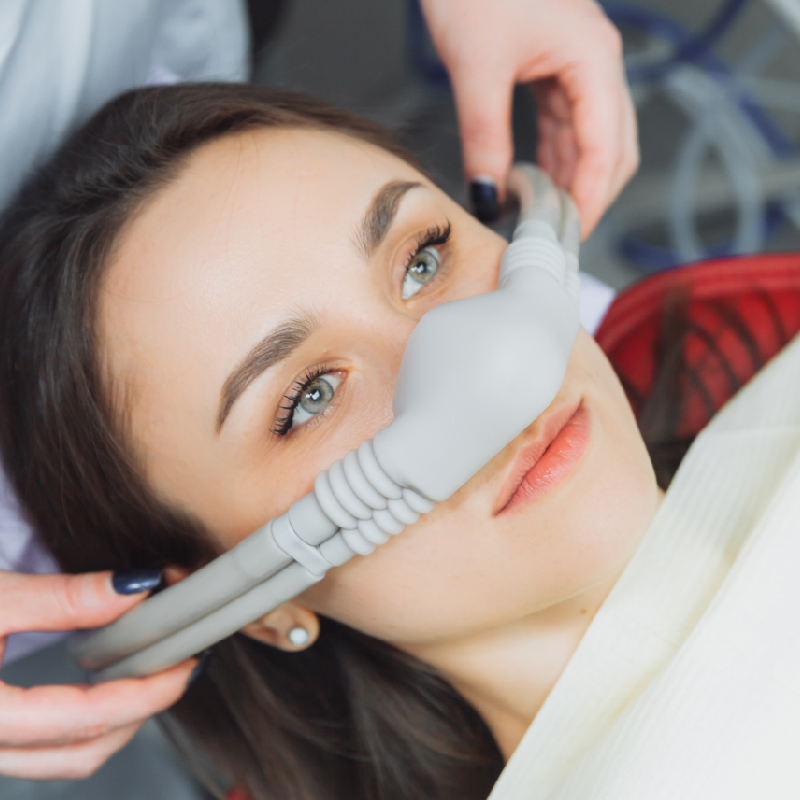Sedation

Sedation
Sedation dentistry helps you feel calm, relaxed and at ease during dental procedures. It’s a moderate level of sedation, so you’re still technically awake but feeling very carefree. It’s sometimes called conscious sedation dentistry or “twilight sleep” because it creates a state of short-term amnesia (forgetfulness) where you experience insensitivity to pain without the loss of consciousness. It keeps you comfortable during dental procedures. It’s beneficial for people with dental anxiety or for those who are undergoing lengthy treatment. Options include nitrous oxide, oral conscious sedation, and intravenous sedation.
Nitrous oxide
Nitrous oxide is commonly known as “laughing gas.” You inhale nitrous oxide through a mask or nosepiece, and calming effects begin within three to five minutes. Your dentist controls the amount of sedation you receive and adjusts dosages accordingly throughout your procedure. Once your treatment is over, your dentist gives you pure oxygen to flush the nitrous oxide out of your system. Because the laughing gas leaves your system so quickly, you’ll be able to drive yourself home after the procedure.
Oral conscious sedation
With oral conscious sedation, your dentist gives you sedative medication (usually in pill form) about an hour before your procedure begins. Oral sedation makes you quite groggy, and you may even fall asleep. But you’ll still be able to communicate with your dentist if necessary, and you’ll awaken with a gentle nudge. Because oral sedation temporarily affects your memory and motor skills, you’ll need a friend or family member to drive you home after your procedure.
Intravenous (IV) sedation
IV sedation dentistry is the deepest form of conscious sedation available in a dental office setting. Your healthcare provider delivers sedative medications directly to your bloodstream through an IV line. During your procedure, your dentist monitors your heart rate, blood pressure, and oxygen levels. They can adjust your dosage at any point and can use reversal medications if necessary. Most people who receive IV sedation dentistry fall asleep and have little to no memory of their treatment when they wake up. This option is best for people with severe dental anxiety or those who are undergoing lengthy procedures.
